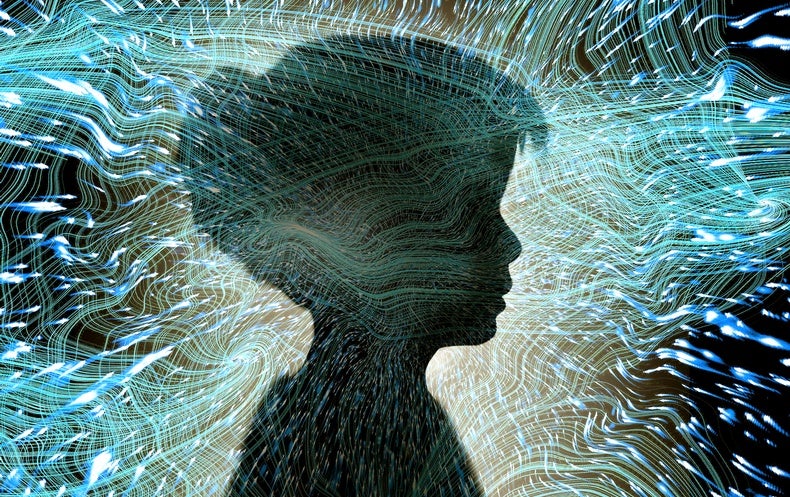Interesting article didnt know where it fit best so I wanted to share it here.
A similar theory of consciousness was made popular by Babylon 5. It’s one of my favorite philosophical theories they discuss. In that show, the Minbari believe the universe manifests itself in each person in an effort to find meaning and understanding. Essentially, sentient life is as much a part of the universe’s core functioning as stars and planets. It develops as the way for the universe to explore and understand itself. To me, this concept is simpler, more beautiful, and more believable than all our human religions.
That’s Vedic philosophy in a nutshell.
Ironic that they say they believe a concept from a show more than any human religion, but it turns out to just be a rehashed belief from one of the most ancient human religions.
I hate to nitpick, but I didn’t say I believed it, I just said it was simpler, more beautiful, and more believable. Obviously anything in a sci-if show is going to be fully influenced by human culture/religion. Just trying to prompt some good discussions over here.
Do you have a link? Everything I see from a quick search is talking about an old sacrificial, polytheistic religion which doesn’t seem to match
https://en.wikipedia.org/wiki/Nondualism
For a start. I’ll see if I can find something better
i love the religion in avatar as well – nothing is ever lost, all our data gets uploaded to the mother tree when we die and are returned to the ethereal realm
100 percent agree with this.
Why does philosophy constantly twist things into an over complicated mythical mess, and then act like it’s some novel insight? Like the things with colors: they only exist subjectively so they aren’t real in any other sense than being observed, so it’s only the observation that makes them real, and does that mean they are even real???
Yes, they are. Subatomic particles vibrate (or absorb vibrations) at specific frequencies, and therefor emit electromagnetic waves at certain frequencies when stimulated. That is real and objective. Evolution has left us with sensors and neurons that can detect and interpret some of these frequencies that appear to us as colors. That is subjective, but the science behind it is not. That’s what happens. Is the color real? Well, define the question better and there is an actual answer. The vibrations are real. Your interpretation is also real, but in a different way. Does the color exist without an observer? Well, what’s your definition of color? Does a tree falling in the woods with nothing to hear it make a sound? Well, what’s your definition of a sound?
The argument is not that they don’t exist.
A color is an example that not all perceived can be described using terms of the physical world, and has variables that can only be experienced rather than described
It all exists in some capacity. Color is either the electromagnetic frequency emitted by particles when stimulated by radiation, or it is the electrochemical signals firing through your brain which process an image based on the way cells in your eyes absorb those frequencies. Or, more precisely I suppose, the intersection of both is where “color” exists, as one cannot occur without the other.
Another aspect of this conversation was what was posited by the Sapir Whorf Hypothesis. The experiential differences in perception of color can also be attributed to differences in culture / upbringing which influenced one’s processing of the stimuli itself. I tend to oversimplify it to the firmware analogy. Sometimes you get raw input and the languages provide different libraries for comtextualizing this input.
Why does philosophy constantly twist things into an over complicated mythical mess, and then act like it’s some novel insight?
I cannot stand that either, but this sort of pseudo-profundity is more common in some specific schools of thought, rather than philosophy in general.
Does a tree falling in the woods with nothing to hear it make a sound?
It’s probably № 1 on my list of stupidest questions. The answer is yes.
Ah, but is a pressure wave propagating through air truly a sound if it does not interact with something that can hear? Or is it just the movement of air???
LoL, I’m sorry I couldn’t help myself.
I love this, it’s an emotionally regulated rant that’s so eloquently written that it’s more intelligent and informative than the article in question.
Only if you stopped reading after the first paragraph and that’s a position held by Galileo which, as comes immediately after, is outdated.
No, it’s not. Next question…
Seriously though, doesn’t basically every experiment in brain surgery and neuroscience disprove this idea? We know how different structures in the brain contribute to consciousness. We can’t explain the mechanism 100%, but that doesn’t mean that every piece of matter secretly has some consciousness embedded in it. It’s God of the Gaps nonsense.
I’m not against posting stuff like this. Obviously serious people take this idea seriously. Just none of the people taking it seriously study brains.
I mean no? Where did you get we have any idea how consciousness works at all? We have no idea what structures on the brain have anything to do with it, or if they have anything to do with it at all.
We know about brain structures shaping our personalities, memories and senses. But that’s not consciousness. Not at all.
Perhaps that is the misunderstanding?
Consciousness is awareness, experience. It’s the “observer” under the experience. THAT is a mystery, that is the hardest problem in science. Not “where in the brain do we process sadness?”…
Is your point that memory, emotions, and sensory input don’t have anything to do with consciousness?
What exactly is consciousness doing without sensory input to process and memory to give those inputs context?
Why do you think “awareness” of sights and sounds is separate from the parts of the brain that process those sights and sounds?
When you look through a microscope, or hear music through headphones, are you those tools? Or are you the thing that hears and sees?
How can you “have” emotions? When you try to reach the baseline of your experience, when you try to find the thing that experiences reality, what do you think you’ll find?
when you try to find the thing that experiences reality, what do you think you’ll find?
Grey goo, a network of neurons, a brain. You can literally inject chemicals into your body that change your emotions and consciousness. Physical things can interrupt my consciousness, so why would you assume consciousness is not a physical phenomenon?
When I look through a microscope, photons go through the lens of the microscope, then similarly go through the lens of my eye. My retina absorbs those photons and translates them into action potentials a.k.a. chemical/electrical signals. Those action potentials reach my occipital lobe (going through some synapses as purely chemical signals) where they interact with other action potentials from other parts of my brain, and I have the experience of seeing an image.
If my occipital is not the final destination of these signals, then what is? Where does the information go after it’s processed by my brain?
Altering or tinkering with the substrate will of course alter the ”functioning” of consciousness. This does nothing to demystify or explain its existence; it only proves that it “utilizes” or depends on that substrate.
If you remove the hands of a brilliant guitarist, you haven’t “proven” that musicality is purely a function of hand structure/mechanics.
deleted by creator
What exactly is the brain the substrate for? All evidence up to this point indicates that the brain is the thing doing the thinking and feeling.
Without some seriously compelling evidence to the contrary, I’m going to assume you’re talking about a soul or some other supernatural idea.
In your example of the guitarist, where would you say musicality actually comes from? I would say the brain, because there is plenty of evidence that brains exist and can be creative.
What exactly is the brain the substrate for?
That’s the question, isn’t it!
I’m not ascribing anything unknown (for now!) to anything magical, I’m simply convinced that remaining agnostic on these ideas is the only honest position to occupy at this time.
For now, we simply do not know the origins of consciousness. Certainly the brain is at the center of it all, literally, but much of “what it’s up to” remains a mystery when it comes to consciousness. Trying to nail it all down (at this point) to biology+physics+whatever reminds me of that old cartoon of a defeated-looking man staring at a giant chalkboard filled with elaborate equations, parted down the middle by the phrase, “and then a miracle occurs…”
Trying to nail it all down (at this point) to biology+physics+whatever
If the stuff happening inside your body can’t be “nailed down” by biology+physics+whatever, then you’re talking about magic whether or not you call it magic.
“What is the brain the substrate for?” Is not a good question to ask because it assumes there is some unknown invisible force acting on the neurons in our heads. Neurons come from an egg fertilized by a sperm, just like every other cell.
Should we ask what the balls are a substrate for, since they are creating the sperm that will one day have consciousness?
(PS thank you for the discussion. It’s all in fun and I think this is genuinely interesting.)
I can see how magic appears to be creeping in!
When I think of “magic” in this context, it’s the kind of magic that a citizen of the Roman Empire might see at work in viewing a Facetime call on an iPhone. I think the wall we hit in trying to unpack and nail down consciousness is a similar impediment; we simply lack the knowledge, understanding, context, and even language (at least so far) to begin to address it directly.
We are smart enough to get these questions, but not yet able to answer them. I don’t think that means we must somehow use our current understanding of a thing to arrive at comforting explanations; instead, I think that this question in particular is forcing us to admit We Don’t Know…and can’t even fathom what it might take to actually nail it down. The black and white/color thought experiment is a beautiful allusion to what this unknowing is like, and I think that’s where we must be comfortable sitting, at least for now!
(PS agreed! Love me a good thoughtful disagreement)
I don’t think that means we must somehow use our current understanding of a thing to arrive at comforting explanations; instead, I think that this question in particular is forcing us to admit We Don’t Know.
Ok, obviously we don’t know the exact mechanism of consciousness and thoughts, no argument there.
You think the belief that my entire self is nothing but a gooey grey organ inside my skull that can be irrevocably damaged by slipping on the floor is comforting?!
Our current understanding of a thing is an interesting way to phrase this. I would argue that our current understanding of a thing is literally the only way we can meaningfully study something. We start with our best current model and go from there. Of course there are sometimes paradigm shifts and big discoveries that seem to come from nowhere, but those are rare, and generally still fit into a wider model for how the universe works. If you don’t understand how some function of the brain works, you shouldn’t jump to the assumption that biology can’t provide an answer. I’m not saying our neurons can’t be the receivers for some extra-dimensional consciousness radio, I’m just saying use Occam’s Razor.
You seem to be looking at the explanation of consciousness the way people looked at the explanation for the inheritance of traits from parents before we knew anything about genetics: a complete mystery. I think the current neuroscience on consciousness is closer to how we were dealing with genetics in the 40s: we knew there was genetic material, we were looking for it, we just didn’t know exactly what it was (DNA). The problem with consciousness is that it isn’t a single thing. It’s a process, so until we nail down every individual step of the process, there will always be people saying that the part we don’t understand yet is the part that can’t be explained by biology.
Have you seen/heard this? https://www.npr.org/2023/08/20/1194905143/how-the-brain-processes-music-with-a-little-help-from-pink-floyd
I think you’ve made some assumptions about my position on this…my sense is that we are essentially in agreement, I’m just a bit more willing to stand in the “we simply don’t know…yet” column?
Yes it deserves study, yes I believe it’s a matter of us not understanding what’s what (and how), not “and then god” or something silly.
It’s simply irrelevant. If you believe this theory exactly nothing changes about what you can predict about the world. That’s what knowledge is all about. If you have a theory that doesn’t behave differently under some different circumstances, you’ve essentially said nothing.
Also reminds me a bit of the chapter in “Surely you’re joking, Mr. Feynman!” called “Is Electricity Fire?”, if someone knows that.
There’s nothing wrong with speculation as long as everyone knows that’s what going on.
Take the work of Julian Jaynes for example; it’s fringe, it’s speculative, but he’s asking questions that nobody else asked before and that in itself is worthwhile because it can pave the way for better questions which are falsifiable.
Consider math, it doesn’t make any empirical predictions on its own, as it is just a set of abstract symbols and rules. Do you consider mathematical facts to be a form of knowledge?
Maths and reality are different. Very different. Reality can be explored empirically while maths is logic not empirical. We can never say we are 100% sure about the rules/laws we have discovered about our reality, but we can say for sure that a maths theorem is true or false.
Maths is a set of self-consistent tools that can be used to predict what happens in reality. The mathematical description of reality is an estimate, contains countless assumptions and inaccuracies about where things are and what properties they have. In fact in quantum physics, we literally can’t know momentum and location at the same time.
Maths can describe (or I should say, approximate) realities that don’t exist.
Because maths and reality are different domains, we can know different things about them using different approaches.
Interesting but I struggle to see how this hypothesis could ever be proven or disproven. If it can’t actually be tested then I don’t see how it presents more scientific value any other religious or superstitious belief.
I could see it being used to help develop theories about the gaps in understanding we have about our universe in theoretical quantum mechanics. That’s the only field of thought that could lead to quantifiable experiments to test hypotheses.
Here’s another way of framing it: qualia, by definition, is not measurable by any instrument, but qualia must exist in some capacity in order for us to experience it. So, me must assume that either we cannot experience qualia, or that qualia exists in a way we do not fully understand yet. Since the former is generally rejected, the latter must be true.
You may argue that neurochemical signals are the physical manefestation of qualia, but making that assumption throws us into a trap. If qualia is neurochemical signals, which signals are they? By what definition can we precisely determine what is qualia and what is not? Are unconscious senses qualia? If we stimulated a random part of the brain, unrelated to the sensory cortex, would that create qualia? If the distribution of neurochemicals can be predicted, and the activations of neurons was deterministic as well, would calculating every stimulation in the brain be the same as consciousness?
In both arguments, consciousness is no clearer or blurrier, so which one is correct?
So our subjective experience must “exist” because we experience it? This seems rather circular. My personal take, consciousness is an artifact of how our brains work. It’s not a thing that exists in any physical sense, it is simply part of the model our brain structures the stimulation it receives throughout the course of our lives.
All of science is based on the assumption that what is observed and experienced exists. You cannot gather data without at some point experiencing some representation of that data. In this sense, qualia is the most real thing possible, because experience is the essence of evidence.
So how do you measure qualia? What is it made of? How is it actually defined? How do you detect if qualia is present in something other than your own head?
I stand by my statement that qualia is simply an artifact of our cognitive architecture. You are welcome to disagree but the arguments you are presenting fail to convince me in the slightest.
As I see it, people keep developing mental constructs to make the experience of their own existence feel more meaningful, more important and potencially eternal, because the thought of insignificance and eventual death is just too scary.
For me, this is less an emotional support philosophy, and more an earnest curiosity about the nature of consciousness and reality.
For all the words we can use on it, it’s lost on people who never had thoughts and experiences that prompted them to be curious about the nature of consciousness and reality.
It’s like discussing the
bitternesssourness of a lemon with someone who never tried one.
But on the other hand: have you tried psychedelics?
deleted by creator
I don’t think “eternal darkness” is a good descriptor. Was there “eternal darkness” before you were born?
Conciousness is just an emergent property of the multiple parts of the brain trying to interpret and respond to its surroundings.
Edit: I stand by what I said, but you all don’t need to be so mean and vile about it…
That sounds like a swell, materialist solution, but it just kicks the can down the metaphysical road and creates more questions than it answers. What parts of the brain interact to create it? What is the subjective experience “made” of? Some kind of energy? How much complexity is required for it to emerge? Are there levels of consciousness? Are babies born with a consciousness that grows more robust over time, or does it pop in at some discrete level? Does the galaxy have an emergent consciousness, it’s certainly more complex than the human brain. What about the universe?
Even if “it’s an emergent property” is true, it’s not a very useful answer. It’s like saying babies come from the hospital, it skips over the part we’re asking the question about.
Panpsychism is probably the most scientifically conservative explanation of consciousness. “Energy fields permeating the universe and interacting with each other” is the model scientists use to explain many, many phenomena, from electromagnetism to mass.
is just
My favorite response for this is ‘point to your mind.’
My mean response is ‘notexecutive@shi.itjust.works is just a random user name with some words attached and no person actually exists behind it.’
Another response could be “A car is just some wheels and an engine.”
Sure would be fun to watch someone try and drive some wheels and an engine.
Do you need to be so needlessly rude?
No one’s been rude though, I don’t know what you’re considering “rude” or “vile”
The default response I get most of the time I comment on things is along the lines of “You shouldn’t have thoughts or opinions and because you shared them I’m going to get as many other users to attack you as possible.”
Thought this might be different considering the context of this post, but here we are. You’re getting downvoted as much as you are upvoted for pointing out that someone is trying to manipulate the context to attack me. No responses either because if they aren’t actually bots they seem to have trouble coming up with any kind of understandable explanation for their behavior.
It’s like being in traffic and getting flicked off by the person that cut you off… when there was no one behind you…
Is ‘your’ interpretation of things the only one that exists?
The point of emerging systems is that they tend to be more than just a sum of their parts:
In One Piece the main characters name is Luffy.
i think that would be beautiful. [at the good times at least] being alive feels too special for it to just be some chemicals knocking about in the head, then you die and it stops
there’s so much we don’t know or understand about the world still – imagine how INSANE the internet or even TV would be to people in the 1700s. what if there are secret frequencies for the soul?
Yes, the big majority of people from that time wouldn’t even grasp the concept of our technology today. So we really should be humble, open minded and cautious with scientific facts, since “facts” can change over the course of time or changing significantly (or can be seen in a new light from new discoveries).
Also, we are not “just chemicals”, since chemicals are made of particles that on a very low level are just energy. So we can be matter but also energy - both statements are true. Which leads to that phenomena, that there can be multiple answers that are equally true.
" I know that i know nothing"
deleted by creator
Did anybody read it to the end? I found myself wondering how many vegans were at the conference around the time they were talking about fish.
I actually just made a community for when you don’t know where to post something.
Life creates it, makes it grow. Its energy surrounds us and binds us. Luminous beings are we, not this crude matter. You must feel the Force around you; here, between you, me, the tree, the rock, everywhere, yes. Even between the land and the ship.
“The universe danced towards life. Life was a remarkably common commodity. Anything sufficiently complicated seemed to get cut in for some, in the same way that anything massive enough got a generous helping of gravity. The universe had a definite tendency towards awareness. This suggested a certain subtle cruelty woven into the very fabric of space-time.”
- Terry Pratchett, Soul Music
No.
No.















